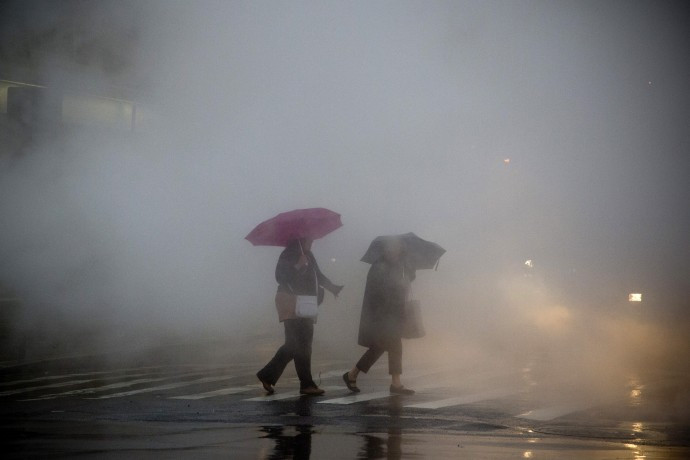Global Warming has Temporarily 'Paused' due to Climate Fluctuations and Weaker Solar Irradiance

Global warming has been temporarily 'paused' according to a group of scientists, who attribute this interlude to climate fluctuations and a more restrained sun.
Researchers at ETH Zurich have explained the two reasons behind the warming hiatus in their study published in the latest issue of the journal Nature Geoscience.
The first is that global temperatures, which rose significantly in the 1990s, have only risen very slightly since 1998 - which has been used by sceptics to question climate change and the models used to measure it.
However, climate fluctuations such as El Niño and its counter-phenomenon La Niña have been shown to have caused the high in 1998 and following cooler years respectively. Climate models cannot predict when exactly these fluctuations will happen.
The other reason for the lower temperatures is weak solar irradiance. As well as fluctations in the climate, changes in the intensity of solar irradiance have been showing unusual patterns. The researchers also say that volanic eruptions, such as Eyjafjallajökull in Iceland in 2010, "have increased the concentration of floating particles (aerosol) in the atmosphere, which has further weakened the solar irradiance arriving at the Earth's surface".
The scientists arrived at their conclusions by using climate data taken between 1997 and 2012 and looking at when El Niño and La Niña corresponded to the findings. They also factored in actual measured values of solar activity and aerosol concentrations from volcanoes.
The scientists pointed to the interpretation of official measured data as crucial. Reto Knutti, Professor of Climate Physics at ETH Zurich, said that measured data is likely to be too low, since the global average temperature is based on values obtained from existing weather stations on the ground, and these are not ubiquitous.
This problem has been overcome by a proposal from British and Canadian researchers who came up with higher values in the temperature chart by using estimated temperatures from satellite data for regions with no weather stations.
Scientists say that the pause in global warming is only temporary. "Short-term climate fluctuations can easily be explained. They do not alter the fact that the climate will become considerably warmer in the long term as a result of greenhouse gas emissions," says Knutti.
He expects global warming to continue as soon as solar activity, aerosol concentrations in the atmosphere and weather phenomena such as El Niño naturally start returning to the values of previous decades.
© Copyright IBTimes 2025. All rights reserved.





















